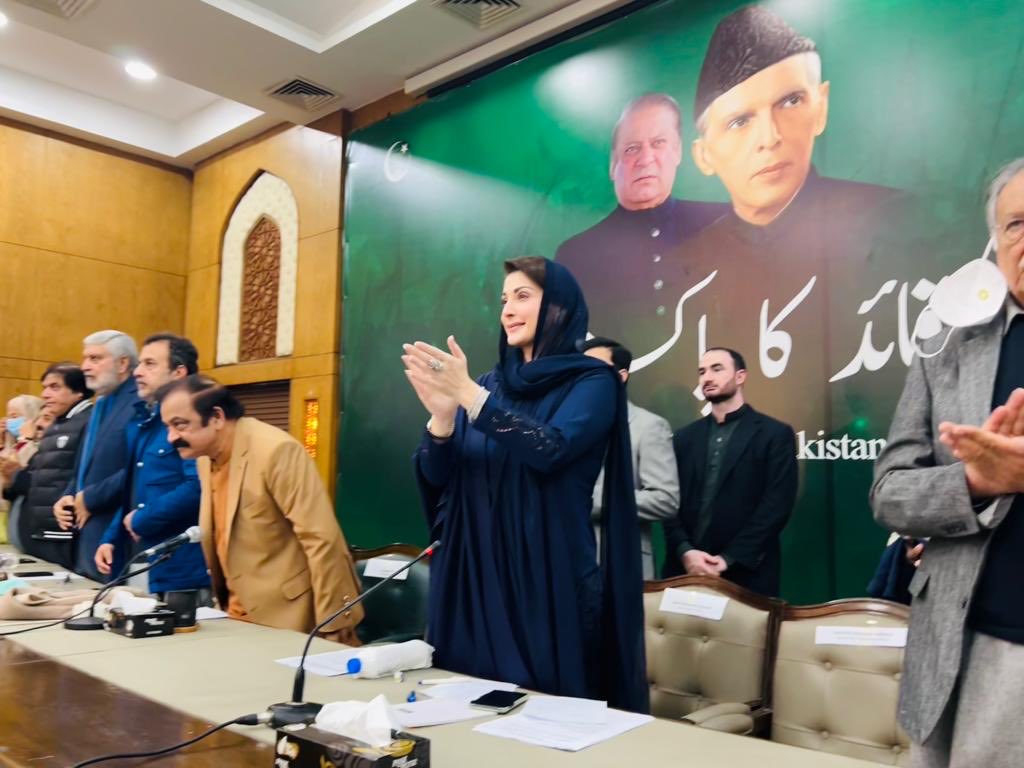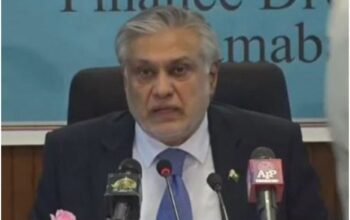“I neither believe in character assassination nor personal revenge”, says the PML-N vice president.
By Staff Reporter
ISLAMABAD: PML-N leader Maryam Nawaz has said she was above the dirty politics of assassinating rival politicians’ characters by attacking their private lives for their public actions.
She said this while responding to allegations that her party was currently working on life-like forged videos or images, created using Artificial Intelligence, to sully PTI leader and former premier Imran Khan’s reputation. This technology is called ‘deepfake’. It is being extensively used in fifth generation political propaganda campaigns with quite a success; however, because it is still not perfect, it can be detected.
The whole deepfake trend went viral after a PTI supporter tweeted an old such video of Imran Khan and Nawaz Sharif lip-syncing the popular song from the eighties, Video Killed the Radio Star, on the social media website Twitter.
This deepfake video has split the social media as some took it as a joke, which it was actually intended to be taken by the tweeps, while others saw it as potential jeopardy that could be a threat to national security and the integrity of the country.
“I do not know why you [PTI] are doing this drama. Imran Khan jailed me twice. Yet I neither believe in character assassination nor personal revenge. An individual’s personal and private life is a matter between that person and Allah, the Lord of Glory. Please keep me away from this filth,” said Maryam in a tweet.
Earlier, former prime minister Imran Khan, in a TV interview alleged his opponents had hired companies which are “preparing material” for his character assassination.
These concerns were voiced by the PTI captain, while PTI social media squad was telling their supporters to beware of deepfakes about their party leader, which they feared were likely to start popping up on the social media after eid.
The PTI social media pages are incessantly tweeting about the dangers of deepfake videos, urging their cohorts to take them with a pinch of salt.
Twitter is currently replete with tweets by PTI leaders that followed Maryam Nawaz’s response to the funny deepfake video.
PTI leader Shireen Mazari in a post on Twitter said, “When pre-emption is an admission of guilt! Now how would u know deepfake video would be about someone’s private life – Niji zindigi? Since u have made lying a habit – from Calibri font to ownership of properties – so nothing u say is believable”.
PTI’s Asad Umar in a Twitter post said, “Hope eid day gives govt time to reflect & understand that the political upheaval is not going to be resolved by filing false FIRs or threats of deepfake videos. So far these are all that the govt has done. Fresh elections are the only way out of crises”.
The term deepfake comes to mean the use of AI to create synthetic media (images, audio, video, etc) in which someone appears to be doing or saying what they haven’t done or said in reality.
According to Kartik Hosanagar, a professor of technology and digital business at the Wharton School of the University of Pennsylvania, deepfake videos can be detected using technology via machine-learning methods.
“For instance, while deepfakes appear highly realistic, the technology was yet not capable of generating natural eye blinking in the impersonated individuals,” he said.
“As such, machine-learning algorithms have been trained to detect deepfakes using eye-blinking patterns. While these detectors can be successful in the short term, people looking to evade such systems will likely just respond with better technology, creating a continuing and expensive cat-and-mouse game,” Hosanagar said.
Deepfake technology is now being seen as a threat to everyone and legislation is required to put legal curbs on this double-edged sword.
Copyright © 2021 Independent Pakistan | All rights reserved




